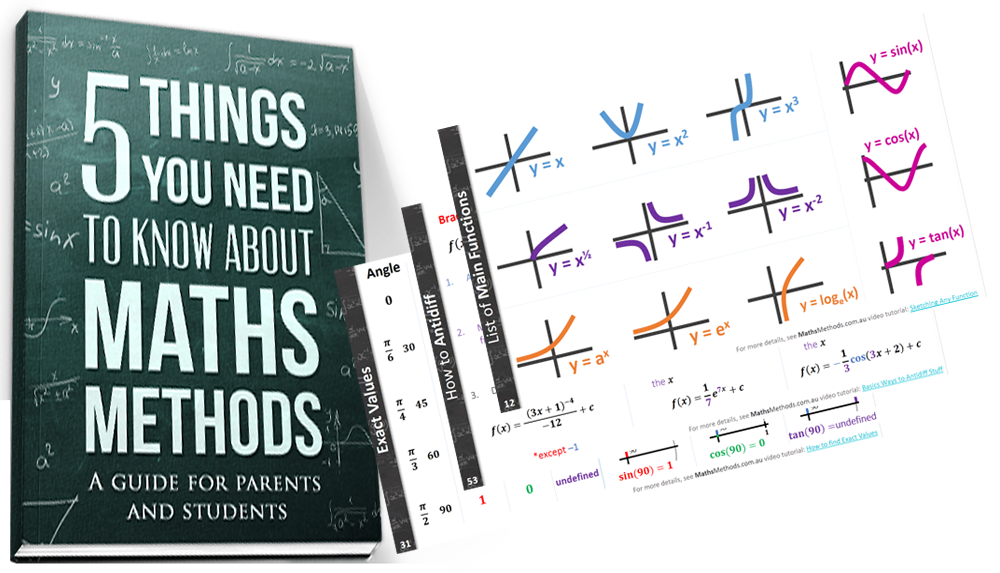Effective Exam Technique
There are many techniques for tests but only by practising doing tests under test conditions you will find what works best for you.
That said, the following advice I have found useful for the majority of students.
1. Don't go for 100%
The exam is designed to be difficult and a lower mark does not necessarily mean you performed badly.
The average mark on Year 12 Victorian exams in the past has been around 45% to 55%. This means a student who barely passes can end up with a Study Score equivalent to the top 26% of the state.
Depending on the test, getting 50% can be equivalent to getting 70% or 80%.
So with with new scoring system, you need a new way of thinking and this is what I've found to the useful:
The exam is treasure hunt where you are trying to find as many marks as possible.
Instead of trying to get everything right, find all the questions you can answer and skip the ones you can't.
2. Answer the easiest questions first
Have the intention to go through the test multiple times. The game is to find as many marks as you can, not get every mark on the exam.
As soon as you hit a question you can’t answer, it's time to move on. If you can't answer it easily, move on. If you are spending any amount of time "thinking" how to answer a question then MOVE ON.
You may find that you go through the test 2 or 3 times, answering more and more questions as you go along. You'll get a better mark if you answer all the questions that you can answer easily first than focus on the ones you can’t.
And remember, you can come back to the questions later. In the meantime, your mind will subconsciously work on it, even if you are focusing on another question.
3. The step-by-step approach to an exam or test
1) Go through the exam and answer all the questions you can answer easily
2) Use full working-out to maximise marks and avoid silly mistakes
3) Move on if you can’t answer the question immediately
4) Go through the test again and answer any other questions that you can answer easily
5) Don’t get stuck on any questions
6) Repeat 1 – 5 until you have answered every question that you can answer quickly
7) Once you have answered everything you can, go through the tougher questions and spend a bit more time on them
8) With the tougher questions, write out all the information you can get from the question, any formulas that might be applicable, draw diagrams as much as possible and then just try stuff. You may need to try several approaches before you find one which works.
9) If you get stuck for too long, move on
10) Keep going through the paper until you’ve answered everything you can possibly answer
11) Check the answers to your questions once you’ve answered everything you can
Most students don’t even finish! This approach will enable you to complete the questions that will get you the maximum amount of marks and leave the questions that won’t.
4. Let your subconscious work for you
Another reason that moving on for a question is so helpful is that we often can’t solve a certain problem when we are focussing on it. Ever lost your keys and then suddenly remembered when you weren’t thinking about it? By shifting your attention on other questions when you get stuck, you will sometimes find the answer miraculously pops into your head. You may have to skip over the same question 2 or more times before you have an idea on how to approach it.
5. Give it a go!
Give this a go! Remember, you will figure out what works for you by practising under timed conditions. Advice is as useful as it works, and you need to find what works for you.
Best of luck!
For more free resources and other helpful advice, enter your email address below:

